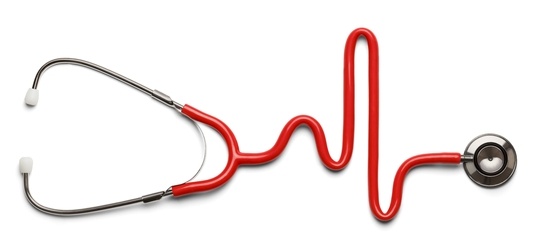Originally published by Cardiovascular Institute of the South
From echocardiograms to CT scans, diagnostic testing is a critical component in the detection and management of all forms of cardiovascular disease. These tests can give your cardiologist valuable insight into the overall health of your heart, as well as clues to potential problems. And, while there are several potential tests that your physician could recommend, electrocardiogram (EKG) is the most commonly used.
What is an Electrocardiogram (EKG)?
EKGs are easily performed in a doctor’s office or hospital, where you’ll be asked to lie down as sticky pads (electrodes) are attached to your chest and limbs. In total, there are typically ten of these electrodes, each connected to a wire which transmits readings to a monitor. There is nothing that you need to do other than lie still, as movement may interfere with your test results.
In a matter of minutes, the EKG will record the electrical activity of your heart. The resulting reading will look similar to what you’ve seen before on a heart monitor – lines with spikes and dips at each beat of your heart. Your cardiologist can then use these lines to help determine if your heart is receiving enough oxygen or beating at an abnormal rhythm.
Why is an EKG Performed?
There are a few reasons why your physician may wish to conduct an EKG. These can include:
- Check the heart’s rhythm
- Identify any underlying cause of chest pain or pressure
- Determine the cause of heart disease symptoms such as shortness of breath, dizziness, or palpitations
- Identify structural problems of the heart’s chambers
- Determine the effectiveness of heart medications or a pacemaker
- Evaluate heart health based on other factors such as high cholesterol, high blood pressure, smoking, or diabetes
What is the Difference between a Regular EKG and Stress EKG?
In some cases, an EKG taken at rest does not provide adequate insight into the heart’s functionality. In these cases, a doctor may choose to perform a Stress EKG instead of, or in addition to, a typical electrocardiogram. Just as in a normal EKG, ten electrodes will be attached to your chest. However, this time you will be asked to walk on a treadmill while your heart is being monitored. Gradually, the speed of the treadmill will be increased until you need to stop. Your heart will continue to be monitored until you have cooled down completely.
If you have experienced chest pain, have high risk factors for heart disease or previous heart troubles, your physician may choose an EKG to help them gain insight into your condition. If problems are found to exist, additional tests may need to be performed in order to ensure a complete understanding of the circumstances, as well as the ability to treat the problem appropriately.
If you have any questions surrounding your heart health and tests that you may potentially need, contact Cardiovascular Institute of the South and request an appointment with any one of our highly-trained cardiology physicians.




